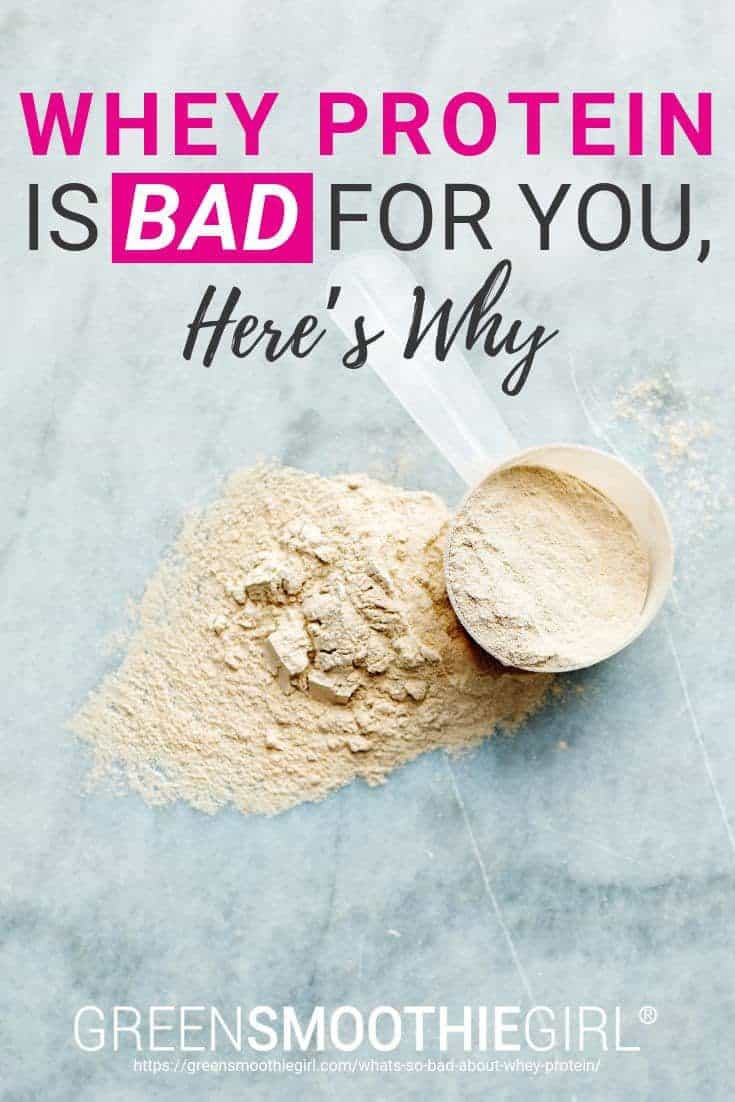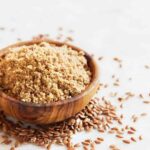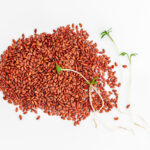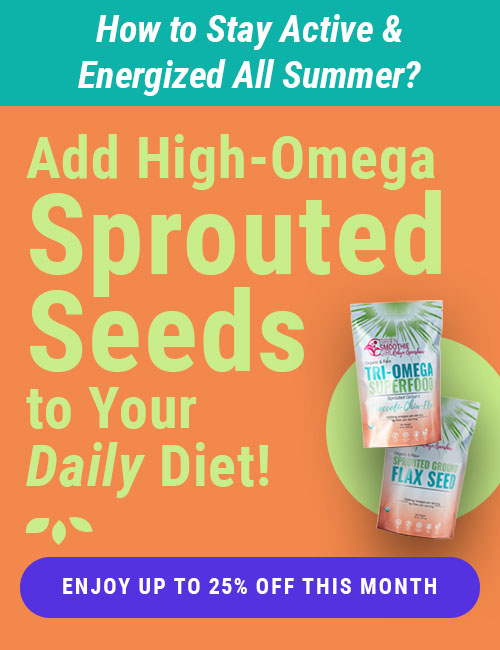Whey Protein Is Bad For You, Here’s What You Need to Know
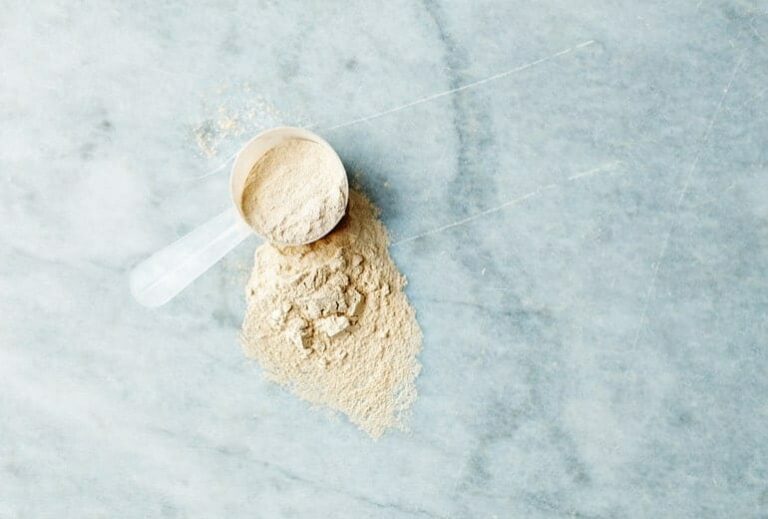
Why should you avoid whey protein?
As an advocate for a primarily plant-based diet, I can’t count how many times I’ve been asked, “But what about protein?”
I’ve written about the epic obsession Americans have with protein intake. It’s true some people do feel better when they get more protein in their diet. If you’re one of those who worries about not getting “enough” protein, you need to know why whey protein is bad for you.
Why Is Whey Protein Bad? | What You Should Know
In this article:
- Why Is Whey Protein Bad for You? It's a By-product (Throwaway)
- Two Better Alternatives
- A Protein Punch from Plants
- Our Superfood Protein Meal
- Bone Broth Protein
- Green Smoothie Girl Protein Powder
Why Is Whey Protein Bad for You? It's a By-product (Throwaway)
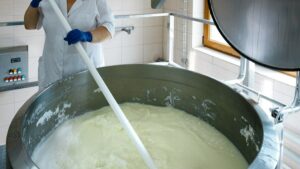
Whey is a bi-product of dairy processing, originally not even considered a food, and is heavily processed itself.
Whey is bad because it wasn't originally considered to be food. Those protein supplements were by-products of dairy processing. Then, the industry discovered they could gather that throwaway product, dry it, and market it as a nutrition product by touting its high protein content. (Which is probably the only good thing you can say about it.)
It’s a manufacturer’s dream—repurposing a waste by-product to increase profit on the same process!
Through great marketing, and because the product has such a low cost for the manufacturer, Americans now spend billions of dollars a year on whey protein supplements.
But just because they’re selling us a lot of it doesn’t make it good for you!
1. Whey Protein Is Overly Processed
Whey protein goes through many refining stages—sometimes up to 14 different processes—before it’s served up to you in a bag or a bar.
It’s a highly refined food, without any real redeeming qualities, and we already know that processing any food causes the body to react negatively in a variety of ways.
Whey protein is also devoid of fiber, low in most micronutrients, and quite acidic. It may cause the human body to react by producing mucus, as it does to flush out anything it doesn’t recognize as nutrition.
Many whey protein powders even contain food dyes like Yellow #5 (Tartrazine), which scientists have proven can negatively affect organs like the liver and kidneys, even at low doses.1
2. Whey Protein Is Full of Hormones, Steroids, and Antibiotics
Because whey is made from cow’s milk, consumers of it are getting high exposure to steroids, hormones, and antibiotics fed to the cow.
Most whey proteins come from conventional cow’s milk. Now, some marketers are differentiating themselves by claiming their whey protein is from cows in New Zealand, from cows that aren’t fed with rBST hormone, or from cows that are organic.
Well, that’s certainly better than the hormone-, antibiotic-, and steroid-laden stuff most manufacturers sell, right?
Wrong. No matter what the source is, any cow’s milk (and therefore, whey) still has all the problematic natural bovine hormones and proteins (different from those in human milk) that have been shown to cause inflammation, flare up autoimmune diseases, trigger allergies, and possibly wreak havoc to insulin long term.2
3. Whey Protein Is Being Linked to Cancer and Heart Diseases
Another answer to the question “Why is whey protein bad?” is these milk proteins have also been linked to cancer and heart diseases by The China Study, the biggest piece of nutrition research ever undertaken.3
You may be familiar with the findings by those Oxford and Cornell researchers who also documented that subjects who didn’t eat milk proteins had much lower rates of cancer and other diseases.
Two Better Alternatives
Don’t get me wrong. I love protein. Who doesn’t want to maintain muscle growth and strength? Who doesn’t want to burn fat? Who doesn’t want to slow down the impact on their blood sugar and decrease the insulin reaction of, for example, the fruit sugars in their green smoothie?
Protein powder is just so convenient for all those purposes and more. I use it myself. But let’s take whey protein off the table, shall we?
In fact, over the years, I’ve also rejected countless other protein powders as too processed, too junky, too gimmicky, or from dubious sources.
It’s why I’ve ended up making my own protein powders. I know exactly what’s in them, what the processes are, and who has handled them.
We just reformulated our plant-based protein powders to make them even more nutritious!
A Protein Punch from Plants
Our NEW and IMPROVED Organic Superfood Plant Protein Meal is an amazing blend of plant proteins combined with high-nutrient greens like kale and spinach and superfoods like spirulina and sachi inchi.
The Chocolate and Vanilla Kiss are naturally sweetened with a bit of herbal stevia.
No matter what flavor you choose, this plant protein powder is a fantastic addition to your green smoothie, or you can add it to water for an easy, yummy nutritious meal or snack.
How wonderful would it be to reach for a product with an ingredient list similar to what you grow in your garden, rather than one you have to Google to understand?
Bone Broth Protein
Are you ready for the cleanest, most delicious grass-fed bone broth protein anywhere?
I don't eat very many animal products, but the collagen-rich bone broth is a whole food that may be a missing link even for people like me who eat mostly plants.
The "skin" of your intestinal tract is huge; it would cover a tennis court. And, nothing is better for the health of your skin than a clean version of bone broth. It's a magic elixir not only for the skin you show the world but for that internal "skin" as well.
The collagen in bone broth helps repair and maintain joints and tissues, while the gelatin and essential amino acids “heal and seal” your gut, promote bone, hair, and nail health, and quiet inflammation.
But, it's a hassle to find grass-fed beef bones and boil it for hours. I tried it for a while, and it was a stinky drag.
Green Smoothie Girl Protein Powder
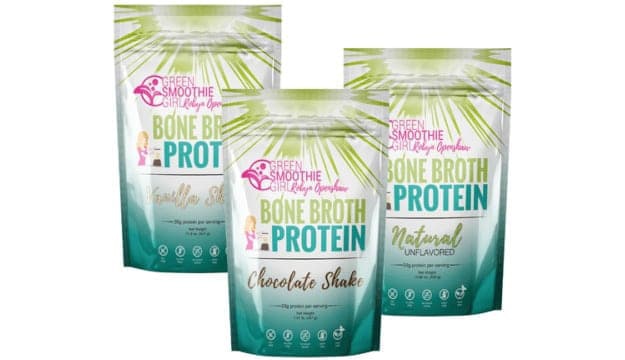
Our Bone Broth Protein Powder comes in three delicious flavors: Natural, Chocolate Shake, and Vanilla Shake
I’m thrilled to bring you our GSG Bone Broth Protein powder in Natural, Chocolate Shake, and Vanilla Shake flavors!
The Natural version is pure bone broth protein with nothing added, and so neutral in taste that you can add protein to any food or beverage without adding any flavor. It goes down easily by itself, too, in hot or cold water.
But, let me tell you about the Vanilla Shake and Chocolate Shake flavors.
They are sweetened with all-natural monk fruit, and these blends are so unbelievably yummy that we had to name them “shakes” because they literally taste like that.
They blend easily and are fabulous in just plain water, cold for a refreshing “shake,” or hot for a soothing, cozy “hot cocoa,” like a treat at bedtime. Even kids will ask for more!
Make the Best Choice for Your Protein Powder
Now that you know the answers to the intriguing question “Why is whey protein bad?” you’ll say “No way!” to whey already. You also need healthy shortcuts and clean protein sources. I pack a bag of both kinds of GreenSmoothieGirl protein powder to get me through long flights and trips where I’m on the move.
If I feel like a meal I’m eating is too high in carbs (carbs are not bad by the way!), I just add some of any of these proteins to water, shake it up, and drink it first.
Keep some in your purse or travel bag along with a blender bottle. This way, you’ll never have to be hungry, and you’ll always get outstanding nutrition.
There are much better, healthier options than whey protein.
Up Next: A Review of John Robbins’ Epic Work, The Food Revolution

Disclosure: This post may contain affiliate links that help support the GSG mission without costing you extra. I recommend only companies and products that I use myself.
Sources:
- Amin, K A, et al. “Effect of Food Azo Dyes Tartrazine and Carmoisine on Biochemical Parameters Related to Renal, Hepatic Function and Oxidative Stress Biomarkers in Young Male Rats.” Food and Chemical Toxicology : an International Journal Published for the British Industrial Biological Research Association, U.S. National Library of Medicine, Oct. 2010, www.ncbi.nlm.nih.gov/pubmed/20678534.
- Gottlieb, Scott. “Early Exposure to Cows' Milk Raises Risk of Diabetes in High Risk Children.” BMJ : British Medical Journal, BMJ Publishing Group Ltd, 28 Oct. 2000, www.ncbi.nlm.nih.gov/pmc/articles/PMC1173447/.
- Campbell, T C, et al. “Diet, Lifestyle, and the Etiology of Coronary Artery Disease: the Cornell China Study.” The American Journal of Cardiology, U.S. National Library of Medicine, 26 Nov. 1998, www.ncbi.nlm.nih.gov/pubmed/9860369.
Editor’s Note – This post was originally published on May 16, 2017, and has been updated for quality and relevancy.
Posted in: Green Smoothies


